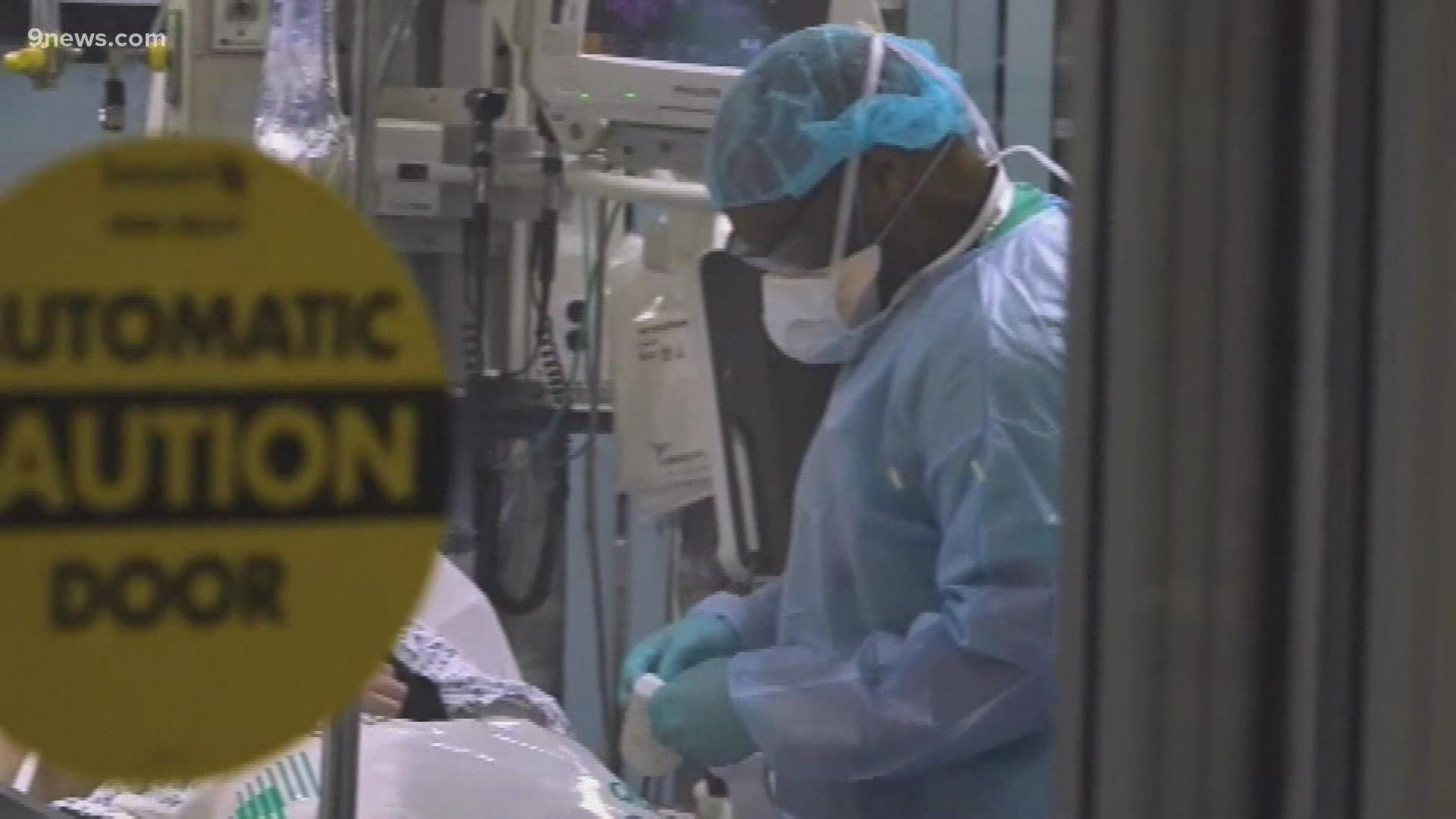COLORADO, USA — With no mask mandates or capacity restrictions in Colorado, life might seem closer to normal again.
But Dr. Matt Wynia, the Director for the Center of Bioethics and Humanities at the University of Colorado, sees another side.
"If you’re outside and the sun is out and the glory of fall is all around you, you don’t realize that our healthcare system is not just at a breaking point--there are places where it’s breaking," Wynia said.
As Colorado hits its highest number of hospitalizations since December, Gov. Jared Polis signed an executive order that gives the state control of hospital admissions and transfers.
This order paves the way for crisis standards of care to be activated.
“It’s not a choice whether to make these kinds of decisions," said Wynia, who was on the team that helped craft Colorado's Crisis Standards of Care during the pandemic.
The document details how decisions need to be made when healthcare institutions become overwhelmed.
Wynia said hospitals are being forced to use crisis care strategies right now.
“I think that it's correct that no one is saying right now there’s a patient who needs a ventilator and can’t get one," he said. "That’s not happening. What is already happening is that there are patients who really ought to be in an intensive care unit but instead they’re in an emergency room. Or they ought to be in a step-down unit but instead they’re on the floor. Or they ought to be getting one-to-one nursing, and instead they’re getting two-to-one, or three-to-one nursing because we just don’t have enough people to take care of all the folks who need care right now.”
The biggest ethical issue Colorado faces, according to Wynia, is choosing where to transfer patients and move staff, since hospitals in areas with a less vaccinated population are more overwhelmed than hospitals in areas with a higher percentage of people vaccinated against COVID-19.
“And that’s uncomfortable for the ones that have capacity still, because, you know, you don’t want to get to full capacity, but when we’ve got areas of the state, it is our responsibility to balance the load across the whole state," Wynia said.
He said load balancing was the reason for the executive orders on Sunday.
Ultimately, Wynia said, people need to remember the actions we took last year to help ease the burden of healthcare workers.
"And we’re doing everything we can," he said. "But we need the public to do their part as well, which means start doing the stuff that you were doing last winter when people were scared of catching this illness. I fear that people think that things are OK and they’re not OK right now. We’re not OK.”
RELATED: Latest COVID-19 numbers: Hospitals preparing to reach capacity as influx of patients continues
SUGGESTED VIDEOS: COVID-19 Coronavirus

